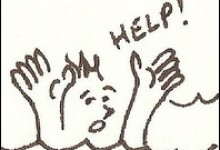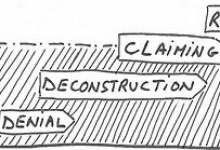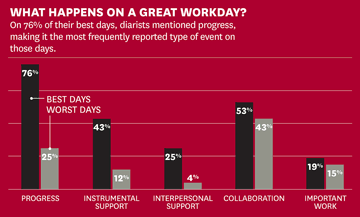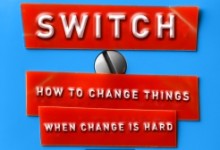Chip Heath is Professor of Organizational Behavior in the Graduate School of Business at Stanford University. Together with his brother Dan Heath he co-authored the best-sellers Made to Stick and Switch. The latter book takes the Elephant & Rider model to make our expertise actionable. It is a must-read for organizational change managers.
Chip Heath

Parenting as a Management Skill … Huh? (part 9)
Great parents know that what looks like laziness is often exhaustion.
It’s Not the Behavior, It’s the Habit!
Rituals and habits are the ultimate context to anchor sustainable behavior change. Unfortunately we focus too much on the behavior itself.
The How of Ownership
Have you ever tried to make someone in your organization the owner of a project or an initiative? How about propelling someone into a new position? Ownership is the road less traveled.
When the Journey is Killing You
When people are paralyzed and overwhelmed by a problem, the last thing they need is a solution that is as big and as complex as the problem.
Gamers Will Save Our Economy (Part 4)
Here is a 12 min presentation by Seth Priebatsch – a proud college dropout – explaining us essential things about the gaming fabric that is being installed on top of our social fabric.
Love & Work (Part 5) – What Motivates Us?
From the previous generations there is no evidence that building more autonomy and purpose into our work environments may lead to happier and more productive people. Luckily times are changing and leaders have to get out of the way for their organizations to survive in the knowledge economy.
Quote
Trying to fight inertia and indifference with analytical arguments is like tossing a fire extinguisher to someone who’s drowning.
Elephants! Everywhere I look!
Forget the cheese and the mice, organizational change management just entered a new era: that of elephants and riders. The Heath brothers published a ground-breaking book on our core business.
Commander’s Intent: getting to the core
“Communication is not the message sent, but the message received.” You knew that. Because like me, you are smart. Like me, you may have used it to outsmart other people when it comes to criticizing their message. But can you make a better message?











